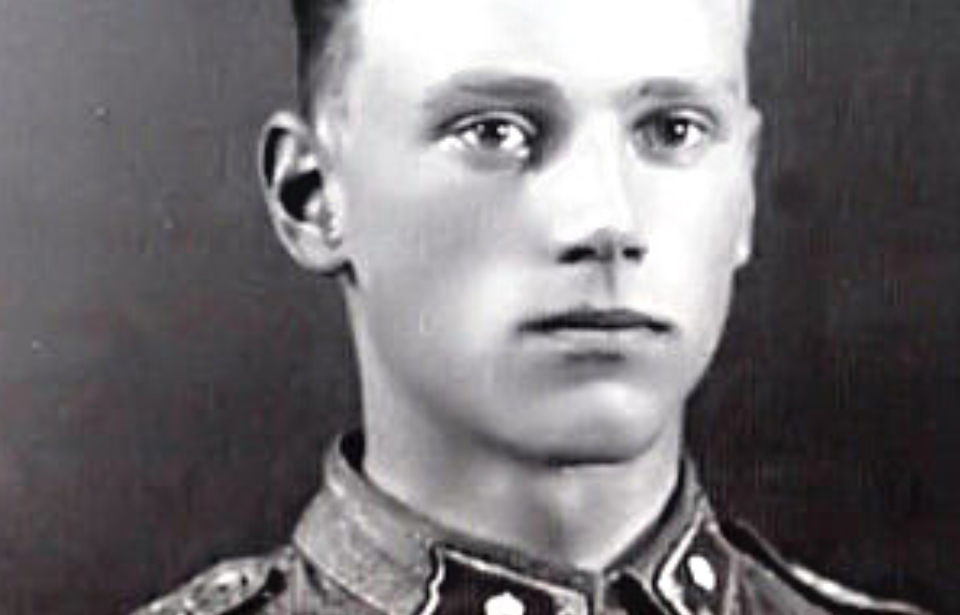During the Second World War, Finland found itself in a unique situation. Initially, the nation sought to avoid entering the conflict. However, that objective was made impossible when the Russians launched the Winter War. Lauri Törni, a young Finn in his early twenties, fought with courage. This was the start of his years-long journey, during which he would go on to serve in the militaries of three different countries.
Lauri Törni’s early life and upbringing
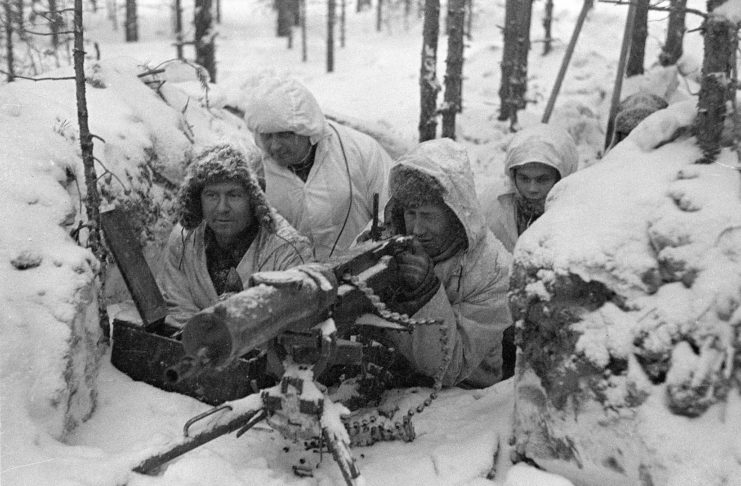
Lauri Allan Törni was born in May 1919 in Viipuri, Finland, to a ship captain father and a homemaker mother. As a child, he displayed both intelligence and athletic talent. After completing business school and serving briefly with the White Guard, he joined the Finnish military in 1938.
In November 1939, Russia launched the Winter War against Finland. This conflict, where the Finns held firm against a significantly stronger Russian force, demonstrated the strength of Finland’s military. Törni served on the frontlines with Jäeger Battalion 4.
During the war, Törni’s battalion was among those that successfully destroyed Russian divisions. Their accomplishments were so significant that he was sent to officer training and commissioned as a Vänrikki (second lieutenant) in the Finnish military reserves.
The Continuation War
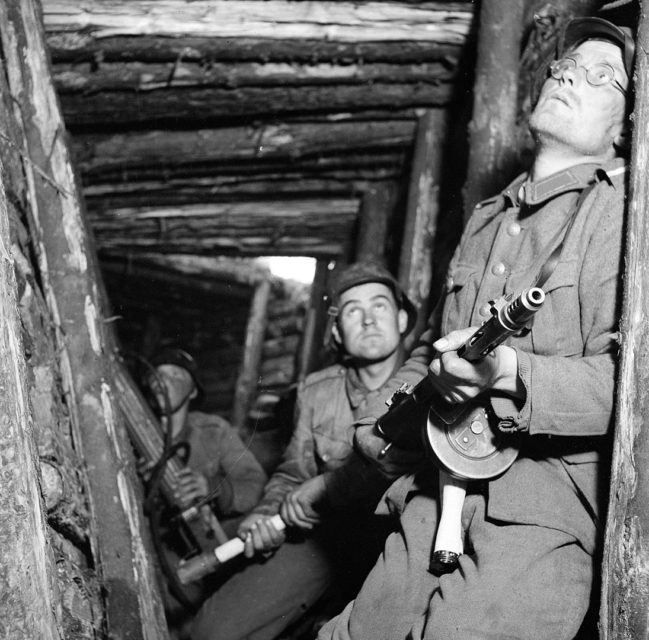
As a result of his abilities, Lauri Törni was sent to Austria to train with the Waffen-SS. He spent seven weeks training with the combat force during the summer of 1941, and was commissioned as an officer when he returned to Finland. The Germans recognized the young soldier as an Untersturmführer (junior storm leader).
Conflict between Finland and Russia began, again, during 1941-44’s Continuation War. By this time, Törni was in command of a unit. Simply called Detachment Törni, the unit caused serious issues for the Russians with its talent for penetrating enemy lines. In fact, Törni’s men were so effective that Russia placed a bounty of 3,000,000 Finnish marks on his head.
Lauri Törni’s continued service
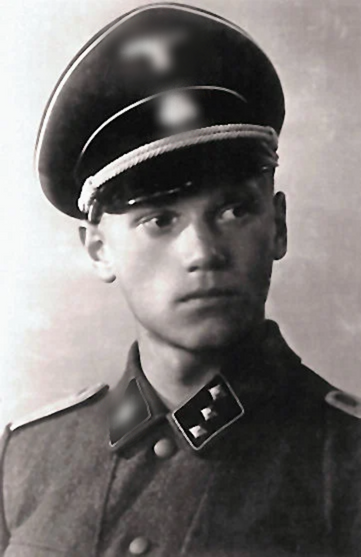
The Continuation War ended in September 1944 with the signing of the Moscow Armistice. Following this, the Finnish Army was demobilized, leaving Lauri Törni without employment and worried that the Russians might again attempt an invasion of Finland.
He joined the pro-German resistance movement in Finland, preparing for possible future conflicts with Russia. Törni received saboteur training in Germany before joining a German unit engaged in fighting the Red Army near Schwerin. He fought alongside the Wehrmacht until mid-1945, when he surrendered to the British Army and was placed in a prisoner of war camp. Törni later escaped and returned to Finland.
In 1946, Törni was arrested and tried for enlisting in the German Army. He was convicted and sentenced to six years in prison, but two years later, Finnish President Juho Kusti Paasikivi granted him a pardon. Once freed, the decorated soldier fled to Sweden.
Lauri Törni makes it to America
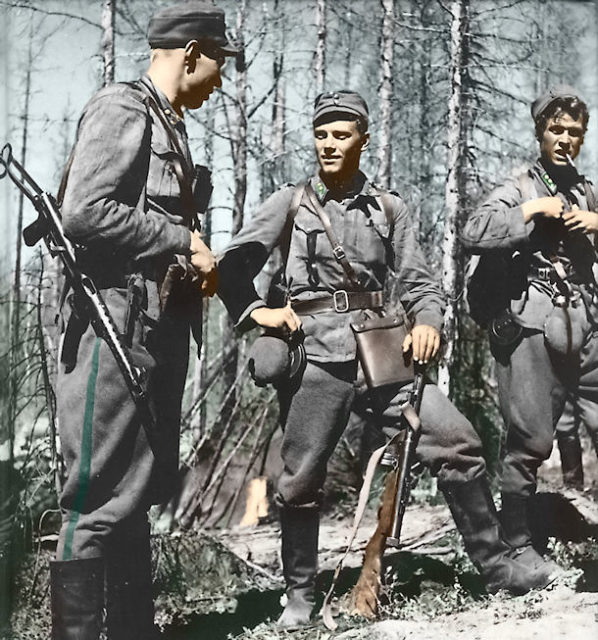
While in Sweden, Lauri Törni fell in love and became engaged. Before getting married, however, he hoped to start a career working on Swedish vessels. In 1950, he jumped off one of these ships near Mobile, Alabama. He eventually made it to Sunset Park in Brooklyn, New York, which had an emigrated Finnish community.
After a few years of working as a carpenter and cleaner, Törni earned permanent residence. In 1954, the Finn joined the US Army and, before long, was training for the Special Forces. Törni trained troops in a number of skills, including guerrilla tactics, survival, skiing and mountaineering. During his time in the US military, he went by the name Larry Thorne.
Between 1958-62, Törni served in West Germany with the 10th Special Forces Group, gaining notoriety for his involvement in a search-and-rescue mission in Iran’s Zagros Mountains. He was then sent to Vietnam with Special Forces Detachment A-734. He was involved in a number of fire fights early on. For his bravery during a fierce battle in the Tịnh Biên District, Törni was awarded two Purple Hearts and a Bronze Star.
Lauri Törni’s death and legacy
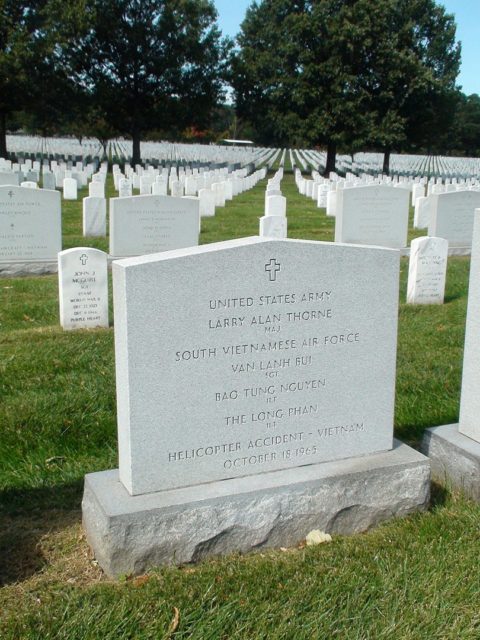
Törni returned to Vietnam for a second tour, this time with the 5th Special Forces Group. Before long, he was transferred to Military Assistance Command, Vietnam – Studies and Observations Group (MACV-SOG), with whom he served as an advisor.
During a mission in October 1965, as part of Operation Shining Brass, the Sikorsky CH-34 “Choctaw” helicopter he was flying in went missing. Rescue crews were unable to locate the site of the crash. Following the incident, Törni was awarded the Legion of Merit and Distinguished Flying Cross. He was also promoted to the rank of major.
More from us: Only 10 Crewmen Survived the Sinking of the Japanese Battleship Fusō – Out of 1,600
Want to become a trivia master? Sign up for our War History Fact of the Day newsletter!
The bodies Törni and those of his fellow soldiers weren’t discovered until 1999. Their bodies were flown back the US and interred at Arlington National Cemetery. Törni, who was formally identified four years later, is the only known former member of the SS to be buried at the hallowed site.
